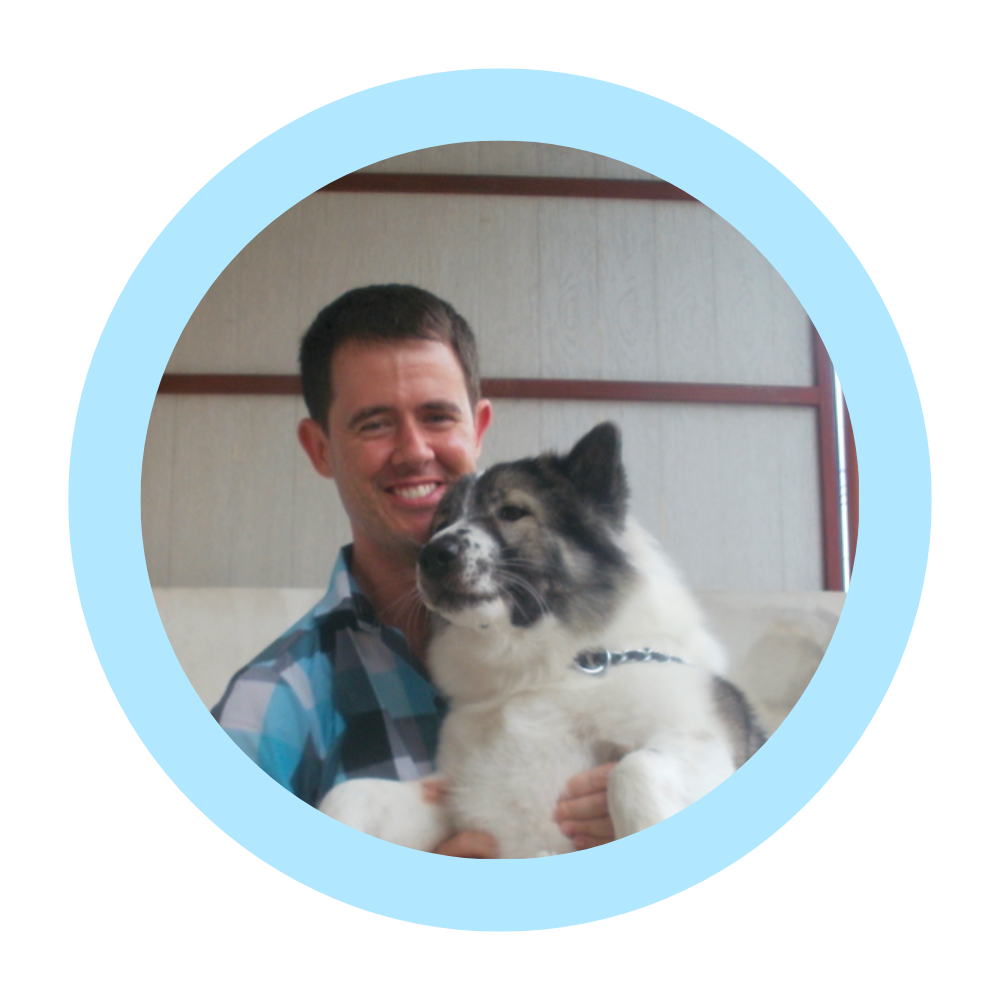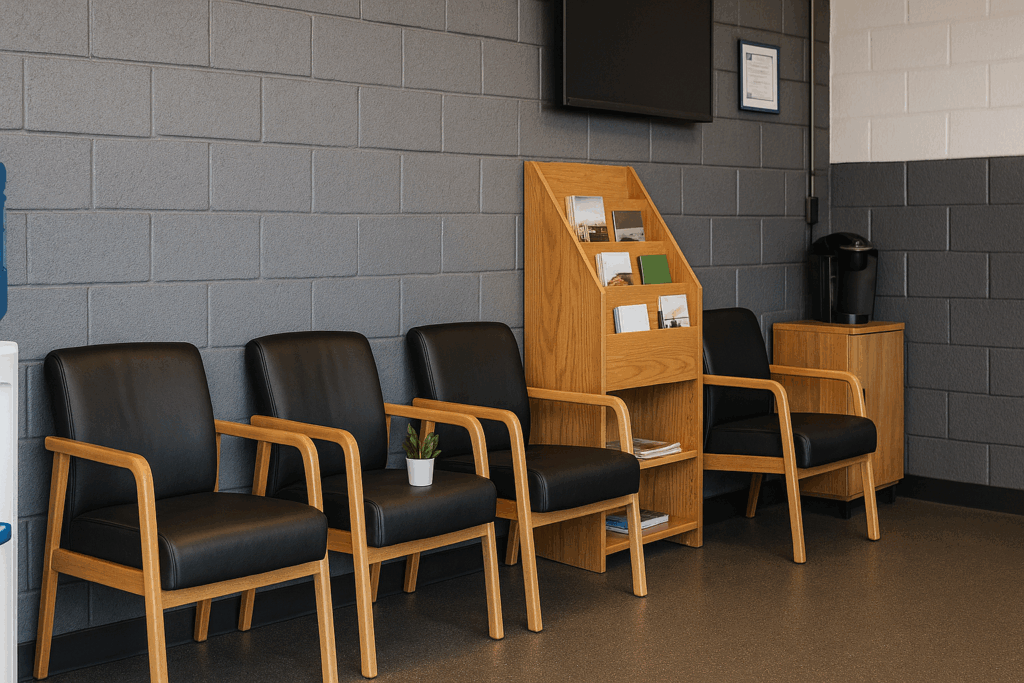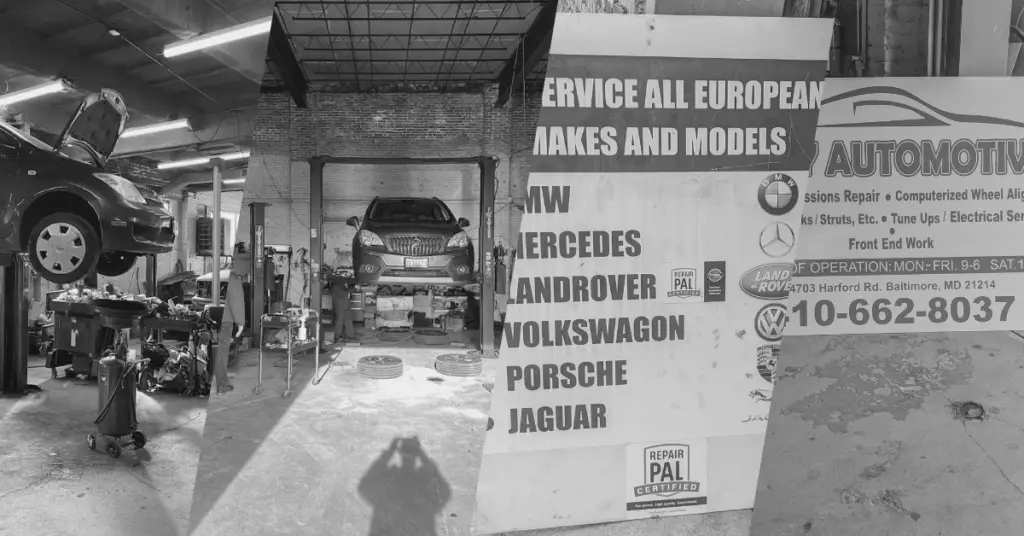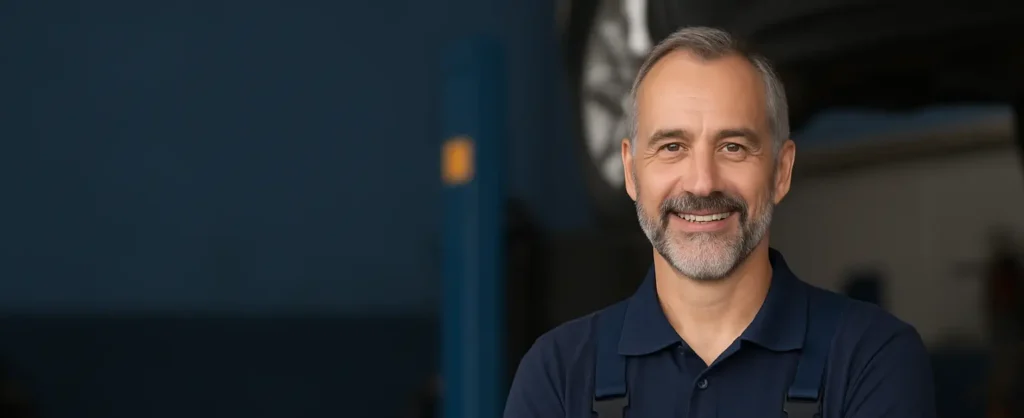Disability Pride Month, celebrated in July each year, is a time to recognize and celebrate the accomplishments, contributions, and diversity of people with disabilities. This aims to empower individuals with disabilities, promote self-acceptance, and challenge societal stigma and discrimination. In this post, we are proud to highlight the strengths and resilience of Christopher Lovelady, Revenue Operations Team Lead for Partners. Chris’ story is a testimonial to the disability community and we are honored to promote his story to bring awareness and a more inclusive and equitable society for all.
I was already feeling the nerves as I walked in, my palms a little sweaty — thoughts starting to race. I’d been driving for more than 10 years, but repair shops were still intimidating. Inside, behind what seemed like a strangely large desk, the owner waited. Our eyes met as I came forward; he gave me a slight nod. Then he scanned from the top of my head down my torso to my feet, and back again. A second inspection. ‘It’s gonna cost you around $1,500.00,’ he said. At the time, this was $1,000 more than the car was ‘worth.’
It broke down just after exiting the freeway. I heard a ‘pop,’ and felt an intense lurch. A plume of smoke rushed from the front of my car to the sky, grays and blues quickly fleeing from whatever happened underneath the hood. I was both startled and fascinated. Looking back, I probably should have been more concerned for my safety, but my main fear watching the smoke rise: my car. I LOVED that car…
I bought it used, a mid 2000’s Nissan Hatchback. The previous owner had added some interesting ‘upgrades.’ There were strange switches underneath the stereo that, when activated, produced disorienting radio effects. It sounded like a 747 during take-off. In the back, it had not one, but three spare tires. Interestingly, these were almost impossible to access, because two years after purchasing the car, I still couldn’t figure out how to open the trunk.
Many people would find these changes a deal breaker. I thought they added to its charm.
I suppose I’m drawn to what some people might think is ‘unusual.’ I kind of think of myself this way. At a young age, I was diagnosed with a rare genetic difference called MHE (Multiple Hereditary Exostoses) or MO. It results from a deletion in my genetic code, where building-block proteins keep... building. Bones grow where they wouldn’t otherwise, extra ones in my legs, arms, chest wall, spinal column. They can be anywhere and pretty much, everywhere. Along with it came scoliosis and Cancer. I’ve had over 30 surgeries.
It's estimated that only 1 in 50,000 people have this Disability, so I have experience with feeling different and apart. For some time, I wanted to conceal or hide it. Implicitly, and sometimes explicitly, I think I was encouraged to shield people from seeing me and my body. I feel more Pride in Disability today, but even still, I’m working through internalized ableism. No matter my feelings, I do know there is no hiding my physicality: the bowing of my arms and legs, the limp, the difference in my height, in my body. I don’t want to hide it anymore.
I’ve had all kinds of reactions. I’ve heard the ‘r’ word. I’ve had people ask what’s ‘wrong’ with me. A couple years ago, someone in a grocery store asked if I was either a ‘little person’ or a ‘jockey,’ and laughed. I think I chose silence as a response, but looking back, I wish I’d asked why they thought I couldn’t be both. I suppose it’s probably better I didn’t ask. Who knows where the interaction might go.
With history and life experience, I can often piece together how I’m perceived. Some people address me with a degree of pity, deciding that being Different is probably being ‘less.’ Others might think I am less, but rather than pitiable, suspicious. Then there are some who also see Difference or Disability as exploitable.
Or they may treat me just as they would any other person that enters their daily life. I, though, as someone living a little differently, never exactly know what I might get. Every interaction can sort of land on a Disability roulette wheel.
When I had the car towed to the nearest repair shop, with my ‘upgraded’ Nissan Hatchback, I had no idea what I might get. As a potential customer, I was aware of the information disadvantage. I had no diagnosis for my car, and at the time, no way in the moment (internet searches while someone stares at you can be pretty awkward) to learn more about it. This was important, but to me just as important: where on the Disability roulette wheel my interaction might land.
The owner had diagnosed my car, but he also completed a second inspection of me. Could he have seen someone pitiable, suspicious, exploitable? Or could he have seen just another customer? I don’t really know. And I think it’s this unknown, this uncertainty that lives in interactions people on the margins face. We don’t know how the party with power in an interaction will really use it.
Car ownership is expensive, and most Disabled People can’t afford it. In America today, Disabled People, especially Disabled Black People, Indigenous People, and all People of Color, are two times as likely to live in poverty. (Data) Many don't have the accommodations to drive, relying on others or public transit. For those of us that can get the necessary accommodations, we often have to spend more on our cars to make them adaptable. This happens while we struggle, both financially and otherwise with a culture that often doesn’t account for us.
No matter our circumstance, Disabled People know that transportation is so, so important. We can’t get the care we need, or participate in the daily life we often want, without transportation. And yet, there are so many barriers to it, to car access, to car repair. We don’t know where to turn, and who to turn to…
When my car died after exiting that freeway, I didn’t know there was something called RepairPal or an 'Estimator.' I had no idea I could find objective, fair information on repair work by going to this website. I also had no idea that there were specific shops and businesses that spend their own time and energy on RepairPal, because they want customers to have objective information, to feel seen.
I know this because I talk to so many of them every month. Call Sue at Vander Wal’s Garage in Shelton WA, Al at R&M Automotive in Providence RI, Jaime at JG Automotive in McAllen TX, Gilberto at GS Automotive in Lakewood, CO, Chris at Golf Crawford Auto in Evanston, IL, Denise at Davis Auto Care in Northville MI (I could go on here…). These are people that know cars AND care about their customers.
Could they have saved my car? Given me more options? Helped me open my trunk ;)? I’m not sure, but I do know now I would have felt less intimidated entering these shops. I’d know in advance, before walking in, that I was going to get an honest, transparent, and thoughtful experience.
I had to sell my car for parts. According to my trusty appraiser (my dad), the repair was $1,000 more than it was ‘worth.’ I don’t think he totally understood how much the car was worth to me. Still, I had to ground myself in practicality. I couldn’t drive that car – safely anyway – forever. I still think of it often though — when I’m talking about the car repair experience, when I’m thinking on the importance of RepairPal’s work, and oddly, when I see or hear an airplane take flight.
I think about that car repair experience I had as well, and my thoughts inevitably go to people living on the margins.
July is here, and it’s a month to celebrate Disability Pride, our resilience, our strength, our creativity to move forward. To think about policy and law, especially the ADA. We’ve come far, but we can definitely go farther: addressing Disabled poverty, helping Disabled People navigate transportation, creating true accessibility. Being different doesn’t mean lesser.
I don’t know what brought you to read this particular blog post today. Maybe you’re a Disabled car owner looking for a safer experience. Maybe you work with a Disability focused organization and are looking to connect your members to a caring network. Maybe you’re like me, and want to celebrate Disability Pride. Perhaps you love the RepairPal blog. No matter the reason, I can tell you from personal experience that RepairPal has a large umbrella. We want you to feel cared for and seen. And we’re invested in serving every customer looking for a great experience with caring people.
Please reach out to us anytime on social media, or send me an email if you like. I read all the email I receive, and do my best to respond within a day — with the understanding that everyone needs their rest. Happy Disability Pride to everyone! Take care of yourself, you’re worth it.
Christopher Lovelady

About Christopher Lovelady
Christopher Lovelady describes himself professionally as an Operations Lead at RepairPal. He is originally from Florida, and now calls San Francisco, California home. His interests are in Human Kindness, Philosophy, Literature or all kinds, and Working in Service to and for Others. He is described as being known for being consistently positive and having a kind demeanor, taking pride in his work everyday on the leadership team at RepairPal.



